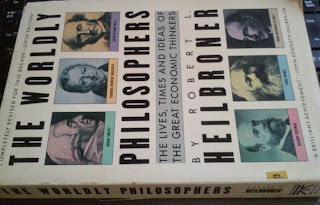The author is no doubt correct to point out that, among many factors, the lack of the rule of law and uneducated Cambodians and their politicians are the curses to Cambodia’s development.
Are Cambodians resistant to change?
There are plethora of research and authors, including expert on Cambodia David Chandler, who opine that Cambodians resist change and want to be left alone. Although Joel Brinkley cites the General Election in 1993 when people chose to change despite threat, intimidation and lie, he agrees that Cambodians are docile. As simple as the theory of expectation says, people choose to change only when they think it is the change for a better future. They believed King Sihanouk would bring a better future for Cambodia that is why they dare choose to change in 1993. Currently, there is no figure who Cambodians can compare to King Sihanouk. Therefore, the battle to win trust from the people is being fought by the ruling party and the opposition party with no decisive force. The author goes too far to say that Cambodians are not ready or courageous to fight for change as can be seen in Myanmar, Sudan etc. He even raises the military standstill in Sudan as a better model. He forgets to mention the uprising against the election result in 1998, among other courageous activists and local NGOs in Cambodia.
Hope?
Although the author mentions various curses in Cambodia, he also foresees a fast changing future. This seems to contradict with his arguments anyway. The changing demography and technology are moving Cambodia to a better country, forcing Cambodian leaders and politicians to be more accountable in what they say and do as well as keeping Cambodians themselves up to date and more educated.
Defects in the Book
In the bibliography, you can see only around a dozen of books. Of course no one reads all books in the bibliography, thus one should expect less than that as the author admits to have read some of them on the plane. One should see factual errors, as Sophal Ear has pointed out.
Is Cambodia on the right direction? The author quotes the two surveys, one by IRI and another by the Asia Foundation, without any second thought. The survey by Asia Foundation, for instance, has two main weak points. First, the sample is only 1,000. This sample is sufficient if they interview people in Phnom Penh to understand their view, but it is too small for a countrywide opinion poll. Second, the questions are vague (I am not sure about its translation into Khmer, as I could not find it). I am curious how uneducated Cambodians perceive this question On the Right Tract… Whatever the result (results of 2003 and 2014 surveys are opposite), one must use it with care.
Rather than analyzing a race, Cambodians, I believe one should do so treating them as a group of people to reduce biasness. Americans would not love freedom and democracy without institutions set up by the UK. The ideas of John Locke did not come up by dreams but by studies. There are various factors that may change a country (See Why Nations Fail, for instance). Although the author tries to explain factors that make Cambodians lazy, for example, I believe he should try harder to look at it from economic and political science perspectives instead of racial perspective as some French did before and during the Colonial periods.
Full title: Cambodia's Curse: The Modern History of a Troubled Land
Publisher: PublicAffairs (September 4, 2012)
Author: Joel Brinkley






